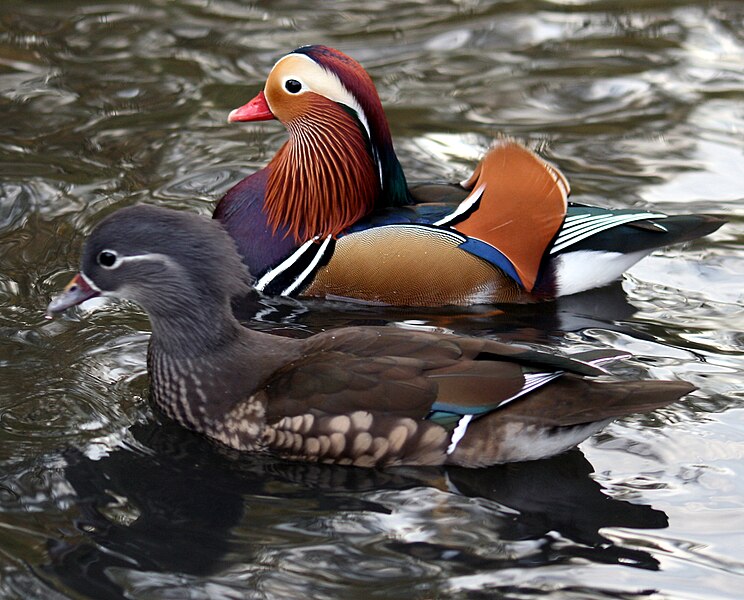
photo by 4028mdk09
but there are also more mysterious mandarins among us. These may be civil servants so shiningly powerful, so polished and wily, that they are quite beyond the power of politicians to grasp or control.
That sort of mandarin has long existed in China, except that a Chinese mandarin would have attained his position by means of examination rather than by family background and bland cunning.
The word mandarin has now been extended to include other people of such great influence (and often wealth) as to be immovable. This sort of a mandarin might perhaps be someone irresistibly influential in the realm of the Arts.
Then there are mandarin collars:

And mandarin ducks (native to China, but kept all over the world for their astonishing splendour):

photo by Keven Law
and of course there's Mandarin the language, spoken by two thirds of the vast population of China.
Here's a traditional Mandarin song, Peng You. It doesn't sound very traditional to me - or very like Mandarin - but I'll trust there's something authentic in there somewhere.
Spot the frippet: mandarin. This word arrived in English from the Portuguese mandarim, via the Malay menteri, from the Sanskrit mantrin consellor, from mantra, counsel. So it's not Chinese after all.
No comments:
Post a Comment
All comments are very welcome, but please make them suitable for The Word Den's family audience.